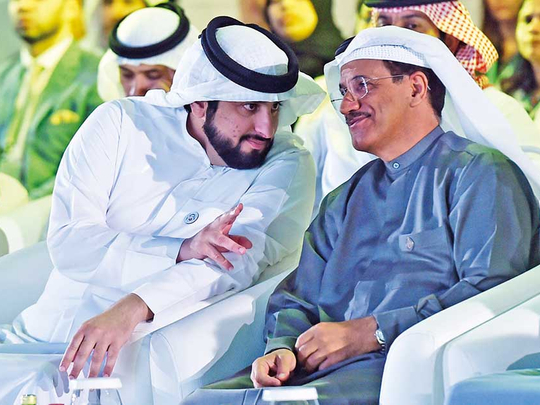
Dubai: The second annual UAE Public Policy Forum opened today at the Dubai World Trade Centre, organised by the Mohammad Bin Rashid School of Government (MBRSG).
Held under the patronage of Shaikh Hamdan Bin Mohammad Bin Rashid Al Maktoum, Crown Prince of Dubai and Chairman of Dubai Executive Council, the two-day forum was inaugurated by Shaikh Ahmad Bin Mohammad Bin Rashid Al Maktoum, Chairman of the Board of Directors at Mohammad Bin Rashid Al Maktoum Foundation,(MBRF).
The event is being held under the theme “Shaping the Future of Public Private Partnerships” and covers such diverse sectors as healthcare, education, transportation, technology and innovation, urban development and sustainable development.
The forum’s first day saw a number of high-profile panel discussion, which included UAE Minister of Economy Sultan Bin Saeed Al Mansouri, Abdul Rahman Al Saleh, Director General at the Dubai Government’s Department of Finance, and Abdul Mohsin Ebrahim Younis, CEO of RTA’s Rail Agency.
Speaking at the session, Al Mansouri said: “A robust economy does not rely solely on the government; it counts on a strong private sector and solid relations between private and public. Defining the nature of this relationship is one the main challenges to its success, and this makes it crucial to have a federal law to regulate it, where the government’s main role is a supervisory one.”
The forum’s first day also included four concurrent scientific sessions or “Knowledge Hubs,” which focused public-private partnerships (PPPs) aimed at adequately preparing Emirati university graduates for entry into the private sector.
The gap between public policy and practice in Saudi Arabia’s education sector, the partnership between Australia’s private and public sectors in education, and the historical origins of public-private partnerships were also discussed.
The UAE Public Policy Forum 2018 seeks to help stakeholders in both public and private sectors evaluate partnership projects in the UAE and the region, exchange ideas and experiences, and develop new policies, regulations and action plans for sustainable development and the knowledge economy.
It focuses on six main pillars: Identifying and evaluating opportunities for public-private partnerships; creating an enabling environment for PPPs; discussing visions and strategies to improve partnerships and increase effectiveness; performance evaluation; using smart technologies and innovation to the benefit of PPPs; and developing policies to govern public-private partnerships in the future.












